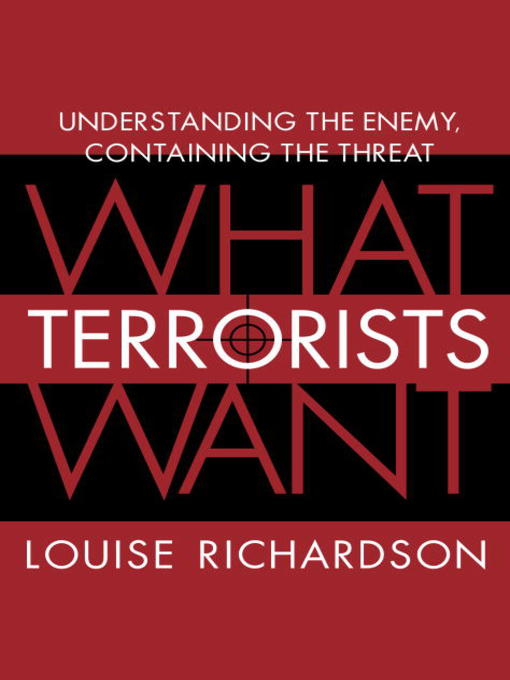
What Terrorists Want
Understanding the Enemy, Containing the Threat
- اطلاعات
- نقد و بررسی
- دیدگاه کاربران
نقد و بررسی

June 26, 2006
Richardson, executive dean of the Radcliffe Institute for Advanced Study, set out to write a single-volume, nonpartisan explanation of "terrorism in all its complexity." Her reach, however, exceeds her grasp in an evaluation that leans more on theory than practice and is unrelenting in its attack on current policy. In fact, she's certain that the war on terrorism cannot be won and advises that we limit ourselves to "containing the threat." Richardson (When Allies Differ
) follows two converging threads: Part I seeks to demystify terrorism; Part II outlines a proper response to the terrorist threat. There is much valuable information, but Richardson is too quick to dismiss or oversimplify issues: "there is no single cause of terrorism"; "efforts to produce a terrorist profile have invariably failed"; and trying to isolate economic causes is "complicated." The author insists that "terrorists are human beings who think like we do," but then dismisses Oklahoma City bomber Timothy McVeigh as "a deranged extremist." In Part II, Richardson dissects U.S. policy since 9/11 and judges it a disaster. The litany of failures is familiar if one-sided: the terrorist threat has been exaggerated, allies alienated, "liberal democratic values" abandoned. Still, Richardson's policy prescriptions, which mirror her criticisms of current policy, deserve a hearing.

October 1, 2006
Richardson grew up immersed in the troubles of Northern Ireland, and her academic research in "terrorism studies" has been fueled in part by proximity to her research subjects and independence from governmental counterterrorism efforts. With this book, she joins the chorus of commentators criticizing the current administration's "war on terror." Eradicating each terrorist movement, she argues, cannot defeat terrorism; however, it can be contained by measures that appreciate the factors driving terrorists and aim to deprive them of what they want. What terrorists want, according to Richardson, is the "three Rs"--revenge (for perceived injustices), renown (the attention of the world), and reaction (disproportionate enough to perpetuate a sense of moral outrage). Although her policy prescriptions are essentially similar to those of many commentators critical of current efforts, her arguments for such methods are studded with historical examples, including many that may be new to readers new to the topic. This book may lead readers to " The Roots of Terrorism," a forthcoming three-volume opus edited by Richardson. (Reprinted with permission of Booklist, copyright 2006, American Library Association.)




دیدگاه کاربران